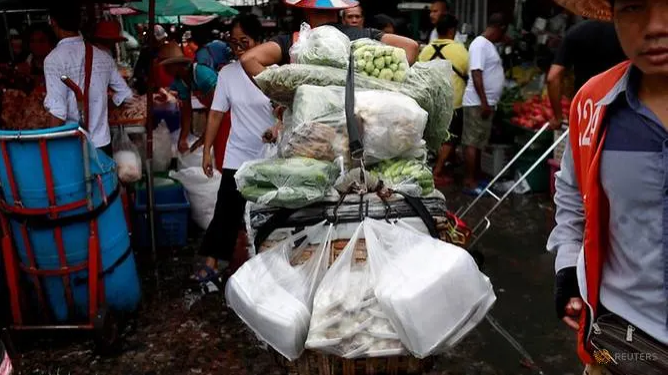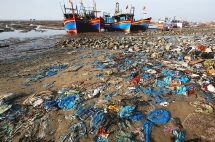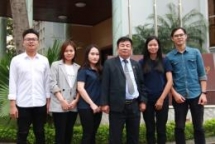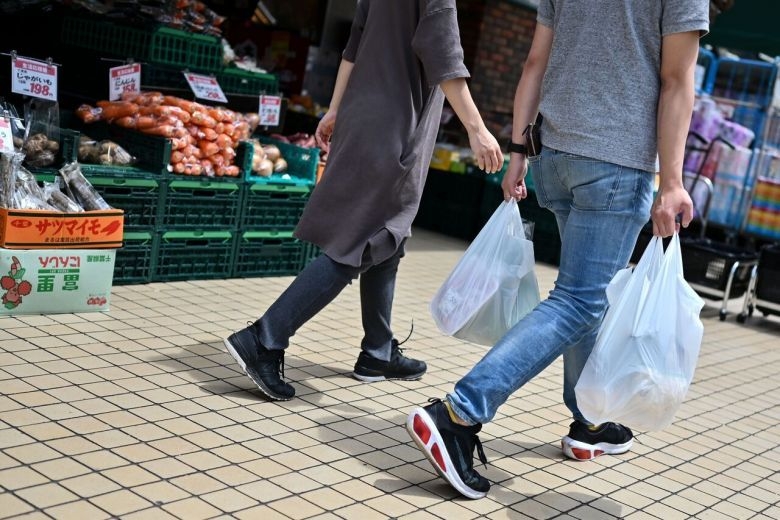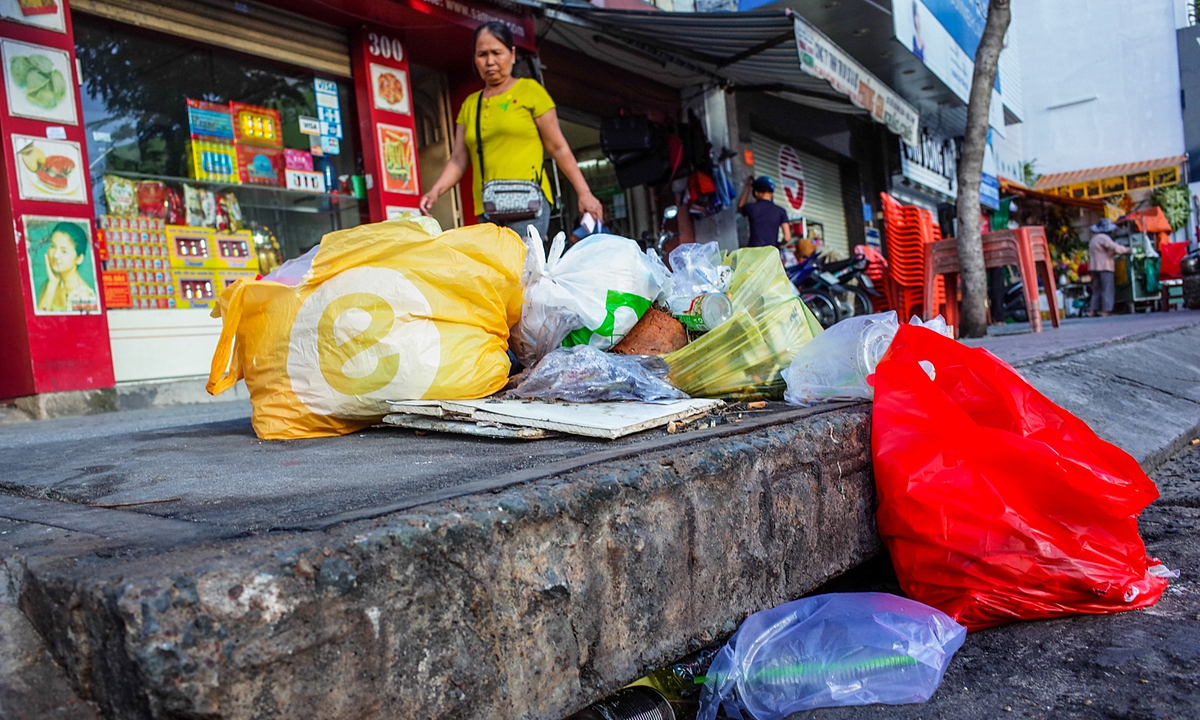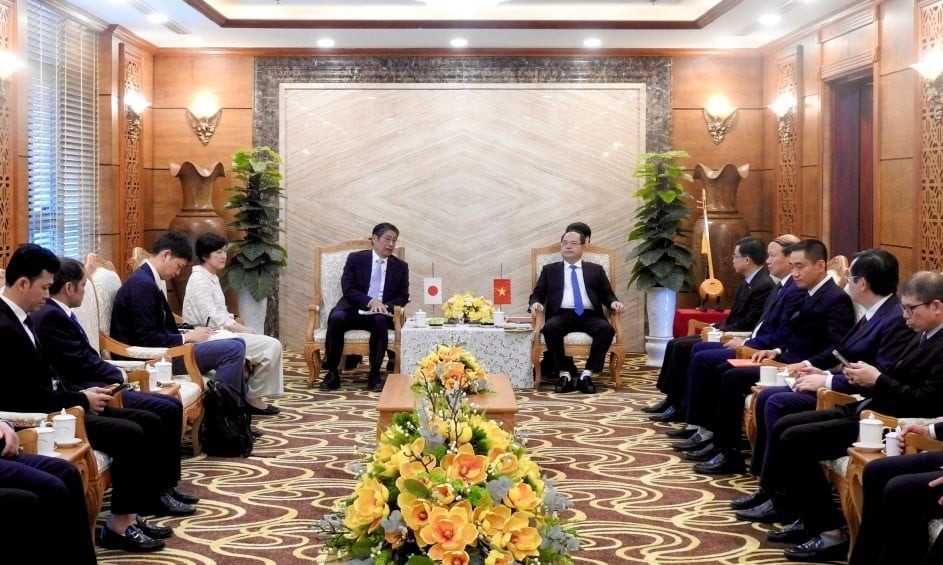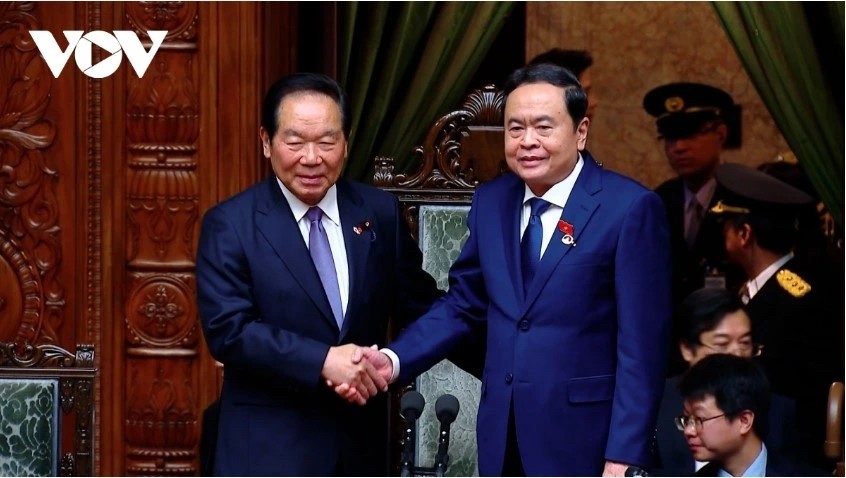Japan: Mandatory charging for plastic shopping bags to reduce waste
| Thailand bans single-use plastic bags at major stores | |
| Vietnam needs tougher regulations on single-use plastic bags: Official | |
| Vietnamese students make paving materials from plastic bags |
Japan started Wednesday (July 01) to require convenience stores, supermarkets, drugstores and other retail outlets to charge for plastic shopping bags, in line with a global trend of reducing plastic waste to combat marine pollution, reported Kyodo News.
The initiative is aimed at encouraging shoppers to bring their own bags and comes as Japan lags behind other countries in curbing the use of plastics, generating the largest amount of plastic waste per capita after the United States.
According to AFP, shops including the ubiquitous convenience stores can decide how much to charge customers for the bags, with a common price being three yen (around four Singapore cents).
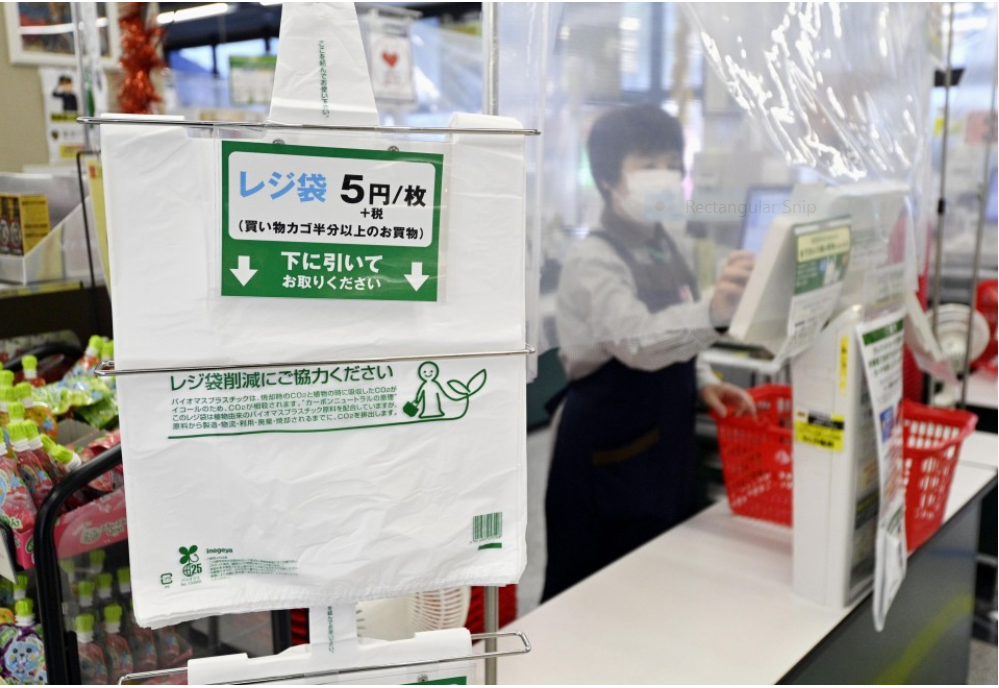 |
| A supermarket notice about a 5 yen charge for plastic bags in Tokyo. Plastic bag fees are to become mandatory in Japan on July 1 to promote the use of eco-friendly bags and reduce plastic waste. Photo: Kyodo |
The new rule seemed to be having some effect, with one shopper telling public broadcaster NHK: "I buy things at a convenience store every morning. I knew the charge was starting so I brought my own bag".
However, the COVID-19 pandemic may also make consumers reluctant to use the same shopping bag each time out of sanitary concerns, and more willing to pay for store-provided ones.
Retailers were divided over whether to charge for plastic bags or continue offering free bags that use environmentally friendly materials, which are exempt from the government's regulation for compulsory charging.
Bioplastic bags containing 25 percent or more of plant-derived materials, as well as reusable bags that are 0.05 millimeter thick or more, are not covered by the regulation.
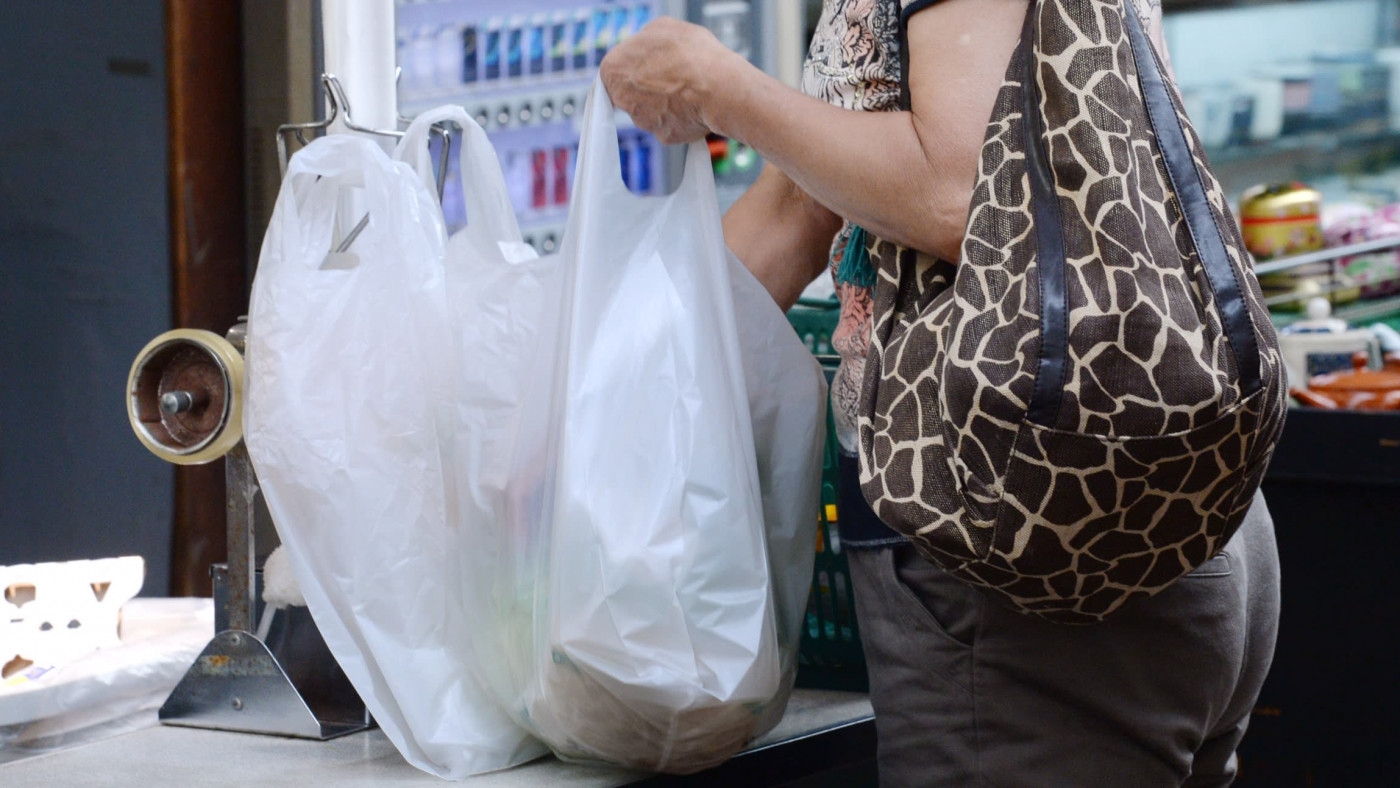 |
| Shops, including Japan's ubiquitous convenience stores, can decide how much to charge customers for the bags. Photo: tbsnews |
I understand that it is a measure to protect the environment but it is bothersome to bring a bag every day," said a 39-year-old male company employee to AFP at a Lawson shop in Tokyo and put them in a bag he brought.
Some companies are implementing solutions to help their customers dealing with this new policy. McDonald's Co. (Japan) Ltd. and beef bowl chain Yoshinoya Holdings Co. offer takeout meals in free bioplastic bags. Major department store operator Isetan Mitsukoshi Holdings Ltd. switched to offering paper bags instead of plastic ones for food products beginning Wednesday.
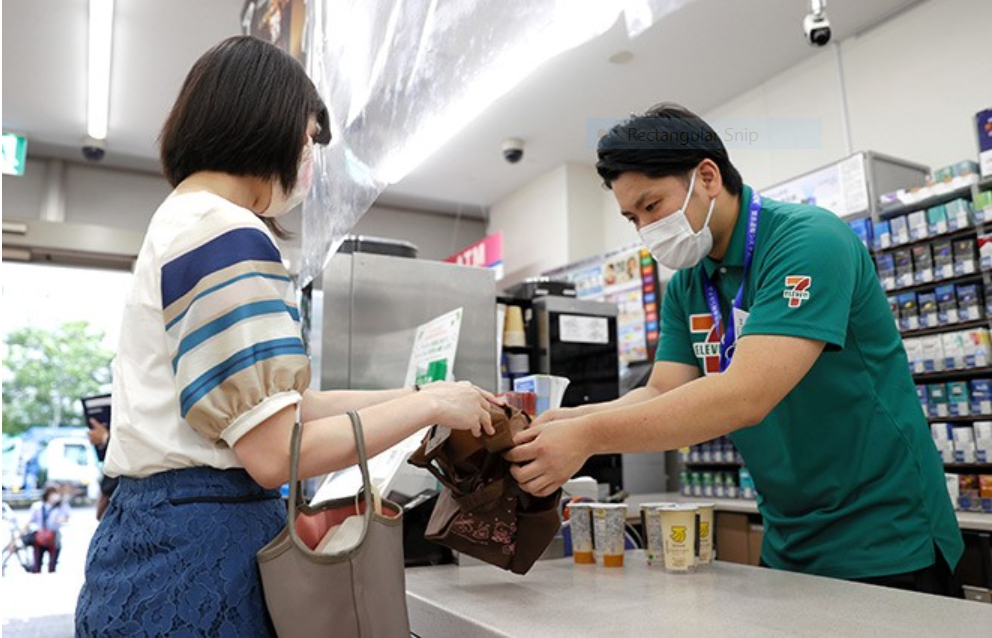 |
| A shopper uses her own bag at a convenience store which started to charge for plastic bags in Tokyo on July 1. Photo: Asahi |
| According to Kyodo News, over 8 million tons of plastic waste is estimated to flow into the oceans every year and cause microplastics pollution, in which tiny pieces of degraded plastics absorb harmful chemicals and accumulate inside fish, birds and other animals as they make their way up the food chain. Japan was responsible for the largest amount per capita after the United States, according to data from UNEP, producing some 9 million tons of plastic waste annually. Some 4 million tons were disposable items such as bottles for beverages, packaging materials and containers.
|
| An article of VNEXPRESS in November 2019 stated a statistic from the Food and Agriculture Organization that, Vietnam discards over 1.8 million tons of plastic waste but just 27 percent is recycled. Ranked fourth in the list of nations dumping plastic waste in the ocean by the United Nations Environment Program, the nation generates around 2,500 tons of plastic waste daily. Each Vietnamese person consumed only 3.8 kg of plastic in 1990, but 28 years later, this had risen to 41.3 kg, according to a report released in September by Ipsos Business Consulting, a global growth strategy consulting firm based in Paris.
|
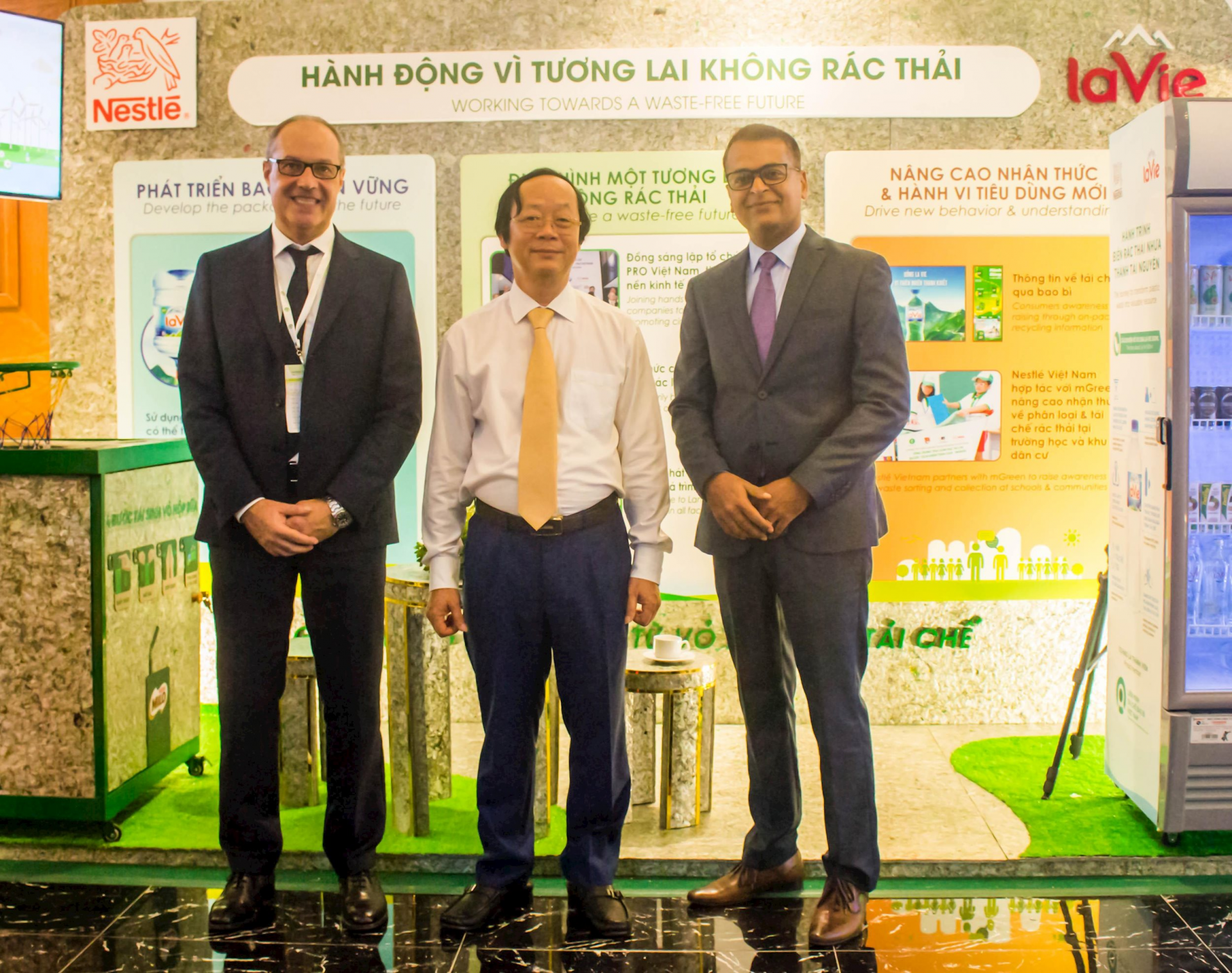 | Nestlé Vietnam and La Vie join forces for zero-waste future In recent years, Nestlé Vietnam and La Vie Co., Ltd. have proactively involved in activities to boost the circulating economy in Vietnam and contribute to ... |
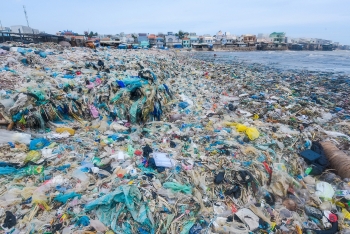 | Norway, Vietnam and UNDP join hands to tackle waste and plastic pollution On the occasion of World Oceans Day, the Norwegian Ministry of Foreign Affairs, the Norwegian Agency for Development Cooperation (Norad), the United Nations Development Programme ... |
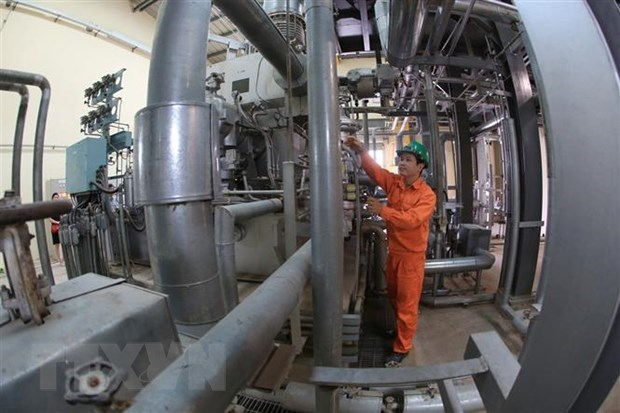 | Suggests for Vietnam to encourage investment in waste-to-energy Experts suggests that it is neccessary for Vietnam to develop policies to encourage investments in waste-to-energy, also called bioenergy, which would significantly contribute to protecting ... |
Recommended
 Handbook
Handbook
Vietnam Moves Up 8 Places In World Happiness Index
 Handbook
Handbook
Travelling Vietnam Through French Artist's Children Book
 Multimedia
Multimedia
Vietnamese Turmeric Fish among Best Asian Dishes: TasteAtlas
 Handbook
Handbook
From Lost to Found: German Tourist Thanks Vietnamese Police for Returning His Bag
Popular article
 Handbook
Handbook
Prediction and Resolution for the Disasters of Humanity
 Handbook
Handbook
16 French Films To Be Shown For Free During Tet Holiday In Vietnam
 Handbook
Handbook
Unique Cultural and Religious Activities to Welcome Year of the Snake
 Handbook
Handbook

